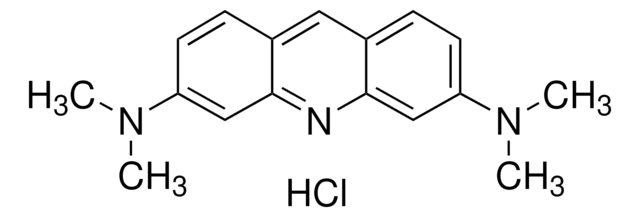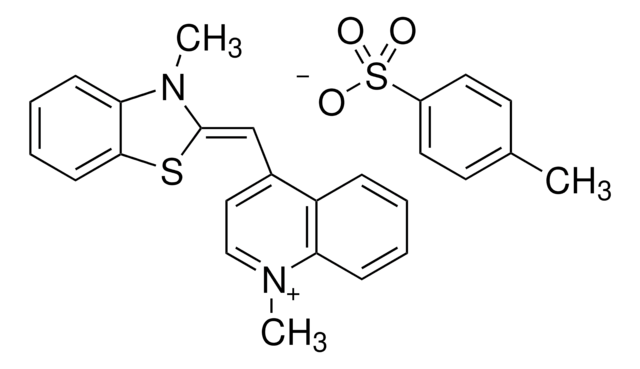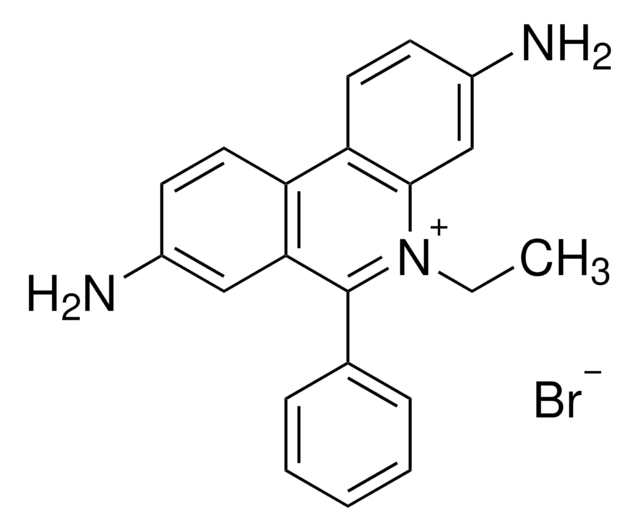A9231
Acridine Orange solution
2% in H2O
Synonym(s):
3,6-Acridinediamine, N,N,N′,N′-tetramethyl-, monohydrochloride, 3,6-Bis(dimethylamino)acridine hydrochloride
About This Item
Recommended Products
form
liquid
Quality Level
shelf life
18 mo.
concentration
2% in H2O
technique(s)
microbe id | staining: suitable
application(s)
diagnostic assay manufacturing
hematology
histology
storage temp.
2-8°C
InChI
1S/C17H19N3/c1-19(2)14-7-5-12-9-13-6-8-15(20(3)4)11-17(13)18-16(12)10-14/h5-11H,1-4H3
InChI key
DPKHZNPWBDQZCN-UHFFFAOYSA-N
General description
Application
It also has the following applications-
- staining of RNA and acid mucins
- detecting apoptosis
- staining blood smears to diagnose malaria
- identifying and enumerating granulocytes in fish
- staining eukaryotic cells to demonstrate low pH structures
Storage Class Code
10 - Combustible liquids
WGK
WGK 2
Flash Point(F)
Not applicable
Flash Point(C)
Not applicable
Personal Protective Equipment
Certificates of Analysis (COA)
Search for Certificates of Analysis (COA) by entering the products Lot/Batch Number. Lot and Batch Numbers can be found on a product’s label following the words ‘Lot’ or ‘Batch’.
Already Own This Product?
Find documentation for the products that you have recently purchased in the Document Library.
Customers Also Viewed
Our team of scientists has experience in all areas of research including Life Science, Material Science, Chemical Synthesis, Chromatography, Analytical and many others.
Contact Technical Service









